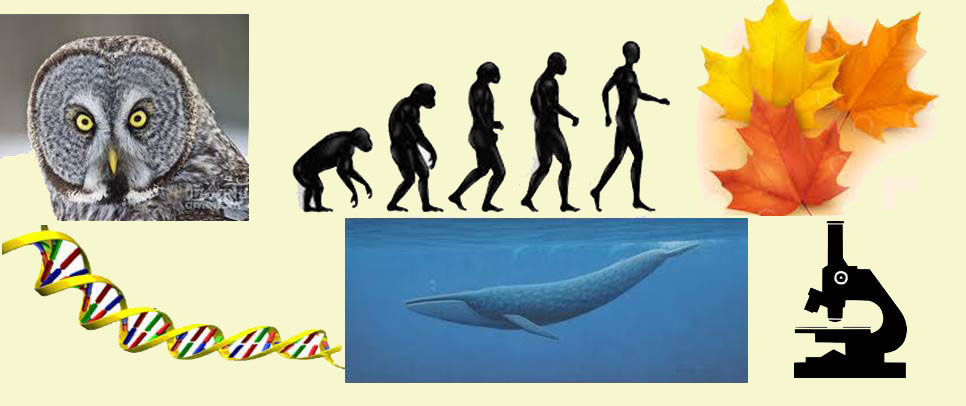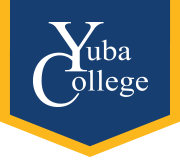
We offer a variety of classes designed to meet the needs of our students. Our goal is to provide our students with a high quality education that will help meet the goals of completing a diverse general education, entering a career in allied health, or beginning an education as a biologist.
Faculty
Melissa Ha
Assistant Professor of Biology
530-741-6914 phone
530-749-3854 fax (shared)
mha@yccd.edu
Classes: Biology 3 (General Botany)
Joshua Pittenger, Ph.D.
Professor of Biology
530-741-6944 phone
530-749-6957 fax (shared)
jpitteng@yccd.edu
Classes: Biology 6 (Introductory Microbiology)
Linda Staffero
Professor of Biology
530-741-6912 phone
530-749-3854 fax (shared)
lstaffer@yccd.edu
Classes: Biology 4 (Human Anatomy), Biology 10L (General Biology)
Jeff Stollberg
Professor of Biology
530-741-6940 phone
530-749-3854 fax (shared)
jstollbe@yccd.edu
Classes: Biology 4 (Human Anatomy), Biology 5 (Human Physiology)
Jenine Tanabe, M.D.
Professor of Biology
530-741-6907 phone
530-749-3854 fax (shared)
jtanabe@yccd.edu
Classes: Biology 5 (Human Physiology)
Staff
JJ Goerz
Instructional Assistant/Lab Technician
530-741-6958 phone
530-749-3854 fax (shared)
email: jgoerz@yccd.edu
Courses
BIOL 1-Principles of Biology (5 units) CSU/UC
Prerequisite: MATH 52
Introduction to biology for majors that emphasizes the molecular, cellular, and environmental processes that are common to most organisms. Topics include an introduction to: biomolecules, cell structure, reproduction, enzymes, fermentation, respiration, photosynthesis, molecular genetics,
heredity, and evolution. Background in high school biology or chemistry is recommended. (L)
BIOL 2-General Zoology (4 units) CSU/UC
Prerequisite: BIOL 1 or BIOL 15 and MATH 52
Applies the concepts introduced in Biology 1 to the study of animals and evolution. Animal topics include: patterns of diversity and classification, anatomy and physiology, development and significance of sexual reproduction. Evolution topics include speciation, macro- and microevolution,
adaptation to environmental and social challenges, and natural selection. Designed for biology majors and related fields but open to all qualified students. (L)
BIOL 3-General Botany (4 units) CSU/UC
Prerequisite: BIOL 1 or BIOL 15 and MATH 52
Applies the concepts introduced in Biology 1 to the study of plants and general ecology. Topics include morphology, physiology, systematics, and evolutionary trends among cyanobacteria, algae, fungi, and plants. Population, community, and ecosystems dynamics of higher plants will be
emphasized. Designed primarily for biology majors and related fields but open to all qualified students. (L)
BIOL 4-Human Anatomy (4 units) CSU/UC
Prerequisite: BIOL 1 or BIOL 15
Introduction to the gross and microscopic structure of the human body. Emphasis on the anatomy and interrelationship between structure and function of the tissues, organs, and organ systems. (L)
BIOL 5-Human Physiology (4 units) CSU/UC
Prerequisite: BIOL 1 or BIOL 15
Introduction to the physiological mechanisms of the human body that lead to homeostasis. Emphasis on the interrelationship of the cells, tissues, organs, and systems. (L)
BIOL 6-Introductory Microbiology (4 units) CSU/UC
Prerequisite: BIOL 1 or BIOL 15
History, structure, metabolism, genetics, and ecology of microscopic life forms; their relationship to disease, immunology, agriculture, and industry. Laboratory emphasizes the development of techniques for the detection, isolation, and identification of both harmless and pathogenic species. (L)
BIOL 10-General Biology (3 units) CSU/UC – UC Unit Limit
The science of life for non-science majors. Provides an overview of the world of living organisms including their classification and unifying characteristics. Introduces basic biological processes such as homeostasis, photosynthesis, cellular respiration, DNA function, cellular reproduction, evolution, and ecosystem interactions with an emphasis on the relationship of structure to function and the interrelationships of living organisms. Lecture only. Not open to students with credit in BIOL 10L. (L)
BIOL 10L-General Biology (4 units) CSU/UC – UC Unit Limit
The science of life for non-science majors. Provides an overview of the world of living organisms including their classification and unifying characteristics. Introduces basic biological processes such as homeostasis, photosynthesis, cellular respiration, DNA function, cellular reproduction, evolution, and ecosystem interactions with an emphasis on the relationship of structure to function and the interrelationships of living organisms. Labs and lectures. Not open to students with credit in BIOL 10. (L)
BIOL 11-General Biology Laboratory (1 unit) CSU
Hands-on laboratory study for non-science majors. Exploration of origin, characteristics, regulation, energy utilization, respiration, and interrelationships of living organisms. Not open to students with credit in BIOL 10. (L)
BIOL 12-Marine Biology (3 units) CSU/UC
Introduction to biology and natural history of marine organisms. Basic scientific principles, classification, ecology, behavior, and evolution of marine organisms are explored in relation to
their environment. The impact of human populations on marine ecosystems and oceans resources is also addressed. (L,M)
BIOL 15-Bioscience (4 units) CSU/UC – UC Unit Limit
Introduction to basic biological principles, including cellular and organismal structure, energetics, control, physiology, genetics, evolution, and environmental interaction. (L,M)
BIOL 24-Human Biology (3 units) Transferable to CSU/UC
An introduction to general biology of human beings;. Emphasis is placed on the concepts, mechanisms and terminology used in anatomy, physiology and ecology. Topics include cell structure and function, human evolution, anatomy and physiology of the organ systems, genetics, and the human impact on the environment. (L)
BIOL 25-Human Genetics (3 units) CSU/UC
Designed for non-science majors to provide an understanding of basic principles of genetics, current developments in genetics, and the influence of genes and the environment in determining human characteristics. (L)
BIOL 35-Problem Solving in Physiology (1 unit) CSU
A companion course to BIOL 5, Human Physiology; appropriate for those wishing additional review in Physiology. Lectures, discussions, and case histories used to explore difficult concepts such as osmolality, nervous system function, acidbase balance, hormonal control, immunity. Time will be allowed for consideration of topics chosen by students. (L)
ECOL 10-Environment-Concepts and Issues (3 units) CSU/UC
Ecology studies the interaction and interdependence among living organisms in their environment. The course presents fundamental scientific principles in examining how natural ecosystems function and how human actions affect natural ecosystems. Emphasis is placed on the role of science in
determining causes and in contributing solutions to local and global environmental problems. (L)
ECOL 11-Environment Lab (1 unit) CSU/UC
Corequisite: ECOL 10
Laboratory and field studies demonstrating the systematic study of both the biological and physical components of ecosystems, especially as seen in local organisms and ecosystems. (L)
ECOL 12-Marine Ecology (3 units) CSU/UC
An introduction to the physical marine environment, marine life, and the interactions between the two. Course also includes a study of human impact upon the marine environment. (L)
Associate Degree in Biology
Required Courses
BIOL 1 Principles of Biology
BIOL 2 General Zoology
BIOL 3 General Botany
CHEM 1A/B General Chemistry
PHYS 2A/B General Physics
PHYS 3A/B General Physics Lab
OR:
PHYS 4A Mechanics
PHYS 4B Electromagnetism
AND ONE OF THE FOLLOWING DEPENDING ON WHERE THE STUDENT WILL TRANSFER:
MATH 1A Calculus
MATH 9 Calculus for Business, Social and Life Science
STAT 1 Introduction to Statistical Methods
ALSO RECOMMENDED BUT NOT REQUIRED:
CHEM 18A/B Organic Chemistry for Health & Life Sciences
Links
College Success Center (small group tutoring)
MESA Program
>Minutes for Department Meetings
